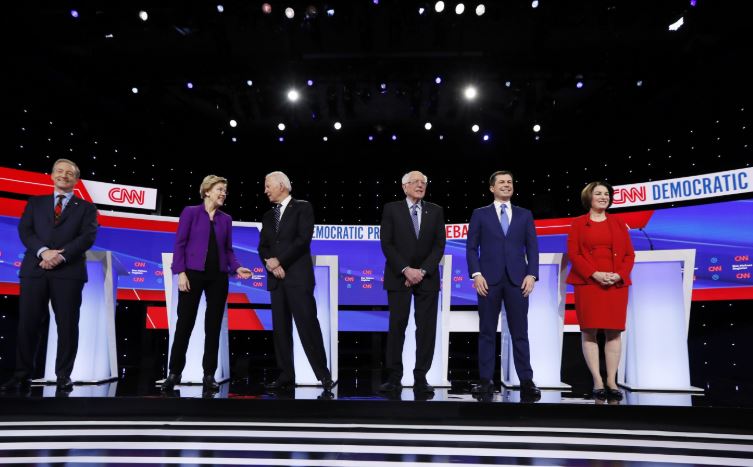
(Photo: AP)
Donald Trump’s impeachment ended with a reminder of why House Speaker Nancy Pelosi resisted the idea for so long — an acquittal everyone saw coming, followed by a bombastic presidential victory lap and a bump in his poll numbers just as the 2020 campaign officially began.
Now Democrats have to decide how to navigate the legislative and political landscape that they’ve helped reshape.
Pelosi’s nationally televised ripping of her copy of Trump’s State of the Union address Tuesday night underscored the acrid atmosphere that will make partisan cooperation on any issue difficult. Major legislative compromises were always going to be hard this election year, but the impeachment fight only deepened partisan bitterness and made progress less likely.
“Because we have to,” No. 2 House Democratic leader Steny Hoyer of Maryland said when asked how Congress and Trump could cooperate on health care and other issues. He added, “I’d be foolish to be optimistic because we have not done that so far.”
Democrats must also decide how vigorously to continue investigations, including into impeachment’s focus: Trump’s effort to pressure Ukraine’s leaders to bolster his reelection by seeking dirt on rival Joe Biden. The GOP-controlled Senate acquitted Trump on Wednesday of both articles of impeachment, with Utah Sen. Mitt Romney the sole lawmaker defying party lines.
Former White House national security adviser John Bolton could still have damaging information about Trump and has expressed a willingness to testify if subpoenaed. House Judiciary Committee Chairman Jerrold Nadler, D-NY, told reporters Wednesday that House panels would likely summon Bolton and pursue other Trump probes as well.
“When you have a lawless president, you have to bring that to the fore, you have to spotlight that,” Nadler said.
Speaking to reporters at the White House on Friday, Trump pushed back once again and argued that his impeachment should be expunged from the congressional record. He also claimed that he was willing to work with Democrats, but then accused the party’s elected leaders of suffering from “Trump derangement syndrome.”
“They’ve got a bad case of it,” Trump said. “That was on display the other night when (Pelosi) ripped up the speech. That was terrible ... so disrespectful to our country.” He added that the Democrats were “not constructive people.”
Even as they consider the path ahead, neither Pelosi nor Democrats controlling the House are second-guessing their decision to impeach Trump.
Pelosi stood as a bulwark against impeachment for months as pro-impeachment sentiment rose steadily in her caucus, but when Trump’s dealings with Ukraine came to light in September, the floodgates were forced open.
“Once Ukraine happened, we had no choice but to proceed,” said Rep. Peter Welch, D-Vt.
“And had we not (acted),” Welch added, “there would have been a huge price to pay politically.”
While that’s a popular view with Democrats’ dominant liberal wing, many think an overemphasis on Trump investigations risks feeding the Republican narrative that overreaching Democrats are obsessed with pursuing him. They also worry about detracting from Democrats’ focus on pocketbook issues that helped them capture House control in the 2018 elections.


